What should I do if I am in regular contact with pigs?(豚を扱う職業の場合)
Even though there is no clear indication that the current human cases with swine
influenza infection are related to recent or ongoing influenza-like disease events in pigs,
it would be advisable to minimize contact with sick pigs and report such animals to
relevant animal health authorities.(具合の悪い豚の取り扱いには、特に注意を)
Most people are infected through prolonged, close contact with infected pigs. Good
hygiene practices are essential in all contact with animals and are especially important
during slaughter and post-slaughter handling to prevent exposure to disease agents. Sick
animals or animals that died from disease should not be undergoing slaughtering
procedures. Follow further advice from relevant national authorities.
Swine influenza has not been shown to be transmissible to people through eating properly
handled and prepared pork (pig meat) or other products derived from pigs. (適切に処理された豚肉料理を食べても感染しません。)The swine
influenza virus is killed by cooking temperatures of 160oF/70oC corresponding to the
general guidance for the preparation of pork and other meat.(豚インフルエンザウイルスは、70度以上で死滅します。)
How can I protect myself from getting swine influenza from infected people?(豚インフルエンザの感染者と接触した場合どうすれば?)
In the past, human infection with swine influenza was generally mild but is known to
have caused severe illness such as pneumonia For the current outbreaks in the United
States and Mexico however, the clinical pictures have been different. None of the
confirmed cases in the United States have had the severe form of the disease and the
patients recovered from illness without requiring medical care. In Mexico, some patients
reportedly had the severe form of the disease.
To protect yourself, practice general preventive measures for influenza:(いつものインフルエンザ対策をしてください。)
• Avoid close contact with people who appear unwell and who have fever and
cough.(熱、咳で具合の悪いヒトとの接触をさける)
• Wash your hands with soap and water frequently and thoroughly.(石鹸で手洗い)
• Practice good health habits including adequate sleep, eating nutritious food, and
keeping physically active.(十分睡眠、十分栄養、適度な運動)
If there is an ill person at home:(もし、具合の悪い家族が出たら)
• Try to provide the ill person a separate section in the house. If this is not possible,
keep the patient at least 1 meter in distance from others.(隔離、少なくとも1mの距離をたもつ)
• Cover mouth and nose when caring for the ill person. Masks can be bought
commercially or made using the readily available materials as long as they are
disposed of or cleaned properly.(具合の悪い家族の看病では、マスク。)
• Wash your hands with soap and water thoroughly after each contact with the ill
person.(看病の後は、石鹸で手洗い)
• Try to improve the air flow in the area where the ill person stays. Use doors and
windows to take advantage of breezes.(お部屋の換気を)
• Keep the environment clean with readily available household cleaning agents.(お部屋周りは清潔に)
If you are living in a country where swine influenza has caused disease in humans, follow
additional advice from national and local health authorities.(感染国にいる場合は、その国の指示にも従って)
What should I do if I think I have swine influenza?(豚インフルエンザにかかったと思ったら、どうすれば?)
If you feel unwell, have high fever, cough and/or sore throat:(もし、高熱と咳そして/または咽頭痛があれば)
• Stay at home and keep away from work, school or crowds as much as possible.(外出を控え、ゆっくり家で休養)
• Rest and take plenty of fluids.(水分補給)
• Cover your mouth and nose with disposable tissues when coughing and sneezing
and dispose of the used tissues properly.(マスクをすること、咳をしたり、鼻をかんだりティッシュを適切に使い、ふたをしたゴミ箱に捨てる)
• Wash your hands with soap and water frequently and thoroughly, especially after
coughing or sneezing.(石鹸で手洗いを)
• Inform family and friends about your illness and seek help for household chores that
require contact with other people such as shopping.(あなたの具合の悪いことを、家族や友人に伝え、家事の援助を求める)
If you need medical attention:(医療が必要な場合)
• Contact your doctor or healthcare provider before travelling to see them and
report your symptoms. Explain why you think you have swine influenza (for
example, if you have recently travelled to a country where there is a swine
influenza outbreak in humans). Follow the advice given to you for care.(病院に行く前に、まず電話で相談し、指示に従う。その時に、渡航歴などを伝える。)
• If it is not possible to contact your healthcare provider in advance, communicate
your suspicion of having swine influenza immediately upon arrival at the
healthcare facility.(前もって電話しなかった場合、診察前に、疑われることを受付の段階で伝える。)
• Take care to cover your nose and mouth during travel.(マスクをする。)
以上、
最新の画像[もっと見る]
-
 中央区決算審議重要論点4−1:子ども・若者の活動の機会創出:選挙立会人
3時間前
中央区決算審議重要論点4−1:子ども・若者の活動の機会創出:選挙立会人
3時間前
-
 小坂クリニックより。インフルエンザワクチン接種を開始いたします。中央区の予防接種費用一部助成事業により小児には一回2000円(二回接種4000円)の助成が今年から出ます。助成券はクリニックにあります。
23時間前
小坂クリニックより。インフルエンザワクチン接種を開始いたします。中央区の予防接種費用一部助成事業により小児には一回2000円(二回接種4000円)の助成が今年から出ます。助成券はクリニックにあります。
23時間前
-
 中央区決算審議重要論点3:中央区からの税の流出、令和6年度38億円、総計195億円(晴海西小建設2校分)
1日前
中央区決算審議重要論点3:中央区からの税の流出、令和6年度38億円、総計195億円(晴海西小建設2校分)
1日前
-
 中央区決算審議重要論点2:帰宅困難者対策DX(きたこんDX)、「中央区防災アプリ」が区外で被災された中央区民を帰宅困難者にさせない。
1日前
中央区決算審議重要論点2:帰宅困難者対策DX(きたこんDX)、「中央区防災アプリ」が区外で被災された中央区民を帰宅困難者にさせない。
1日前
-
 中央区決算審議重要論点1:いかに歳入を増やすか。基金の運用、特に、債券を用いた基金の運用。
1日前
中央区決算審議重要論点1:いかに歳入を増やすか。基金の運用、特に、債券を用いた基金の運用。
1日前
-
 財政白書から、中央区の財政運営を読む。一部、指標の悪化があります。
2日前
財政白書から、中央区の財政運営を読む。一部、指標の悪化があります。
2日前
-
 財政白書から、中央区の財政運営を読む。一部、指標の悪化があります。
2日前
財政白書から、中央区の財政運営を読む。一部、指標の悪化があります。
2日前
-
 財政白書から、中央区の財政運営を読む。一部、指標の悪化があります。
2日前
財政白書から、中央区の財政運営を読む。一部、指標の悪化があります。
2日前
-
 10月上旬の時間変更につきまして、お知らせさせていただきます。いつもこの時期の変更、どうかご了承願います。病児保育通常通り。
3日前
10月上旬の時間変更につきまして、お知らせさせていただきます。いつもこの時期の変更、どうかご了承願います。病児保育通常通り。
3日前
-
 今週末の診療日程。9/28(土)9:00-9:30、29(日)11:00-13:00
5日前
今週末の診療日程。9/28(土)9:00-9:30、29(日)11:00-13:00
5日前
「各論:新型インフルエンザに備える」カテゴリの最新記事
 次のパンデミックに備える、パンデミックに対応するクリニックとなるための『医療...
次のパンデミックに備える、パンデミックに対応するクリニックとなるための『医療...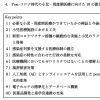 今、コロナを一度、総括すべきとき
今、コロナを一度、総括すべきとき 尾身茂氏ご著書『1100日間の葛藤 新型コロナ・パンデミック、専門家たちの記録』...
尾身茂氏ご著書『1100日間の葛藤 新型コロナ・パンデミック、専門家たちの記録』... 厚労省資料:新型コロナウイルス感染症の感染症法上の位置づけの変更に伴う医療提...
厚労省資料:新型コロナウイルス感染症の感染症法上の位置づけの変更に伴う医療提... 今後のコロナとどう対峙していけばよいか。単にコロナ前にもどるのではなくて、今...
今後のコロナとどう対峙していけばよいか。単にコロナ前にもどるのではなくて、今...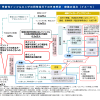 今冬、医療現場最大の課題。同時流行に備える!第1回新型コロナ・インフル同時流行...
今冬、医療現場最大の課題。同時流行に備える!第1回新型コロナ・インフル同時流行...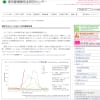 日本の来るべき冬を占う今冬のオーストラリアで、インフルエンザが流行
日本の来るべき冬を占う今冬のオーストラリアで、インフルエンザが流行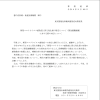 発生届けに関する都の考え方(2022.8.29現在)
発生届けに関する都の考え方(2022.8.29現在) 新型コロナワクチンにつき、考える記事。
新型コロナワクチンにつき、考える記事。 のど元過ぎれば…とならない、次に備える新型コロナウイルス感染症の検証を。中央区...
のど元過ぎれば…とならない、次に備える新型コロナウイルス感染症の検証を。中央区...










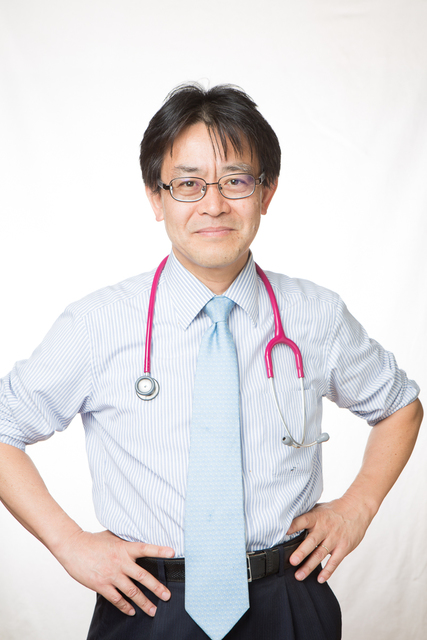






※コメント投稿者のブログIDはブログ作成者のみに通知されます